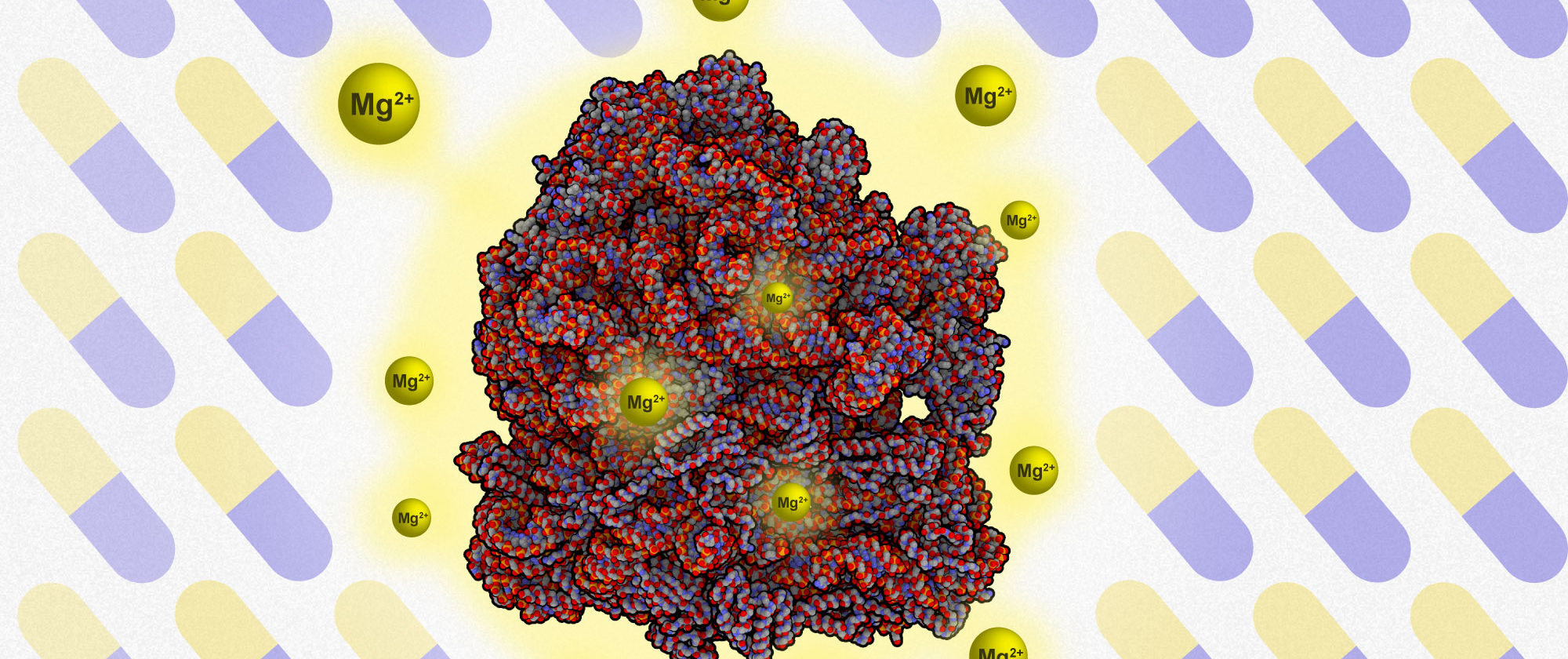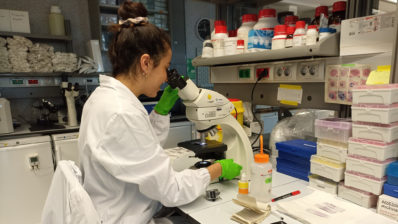When we use antibiotics against two genetically identical bacteria, which have not developed resistance to antibiotics and are found in identical conditions, they can respond in different ways: one bacteria could die, for example, while the other survives.
Recently, researchers at the Department of Experimental and Health Sciences of the Pompeu Fabra University (DCEXS-UPF) and the University of California have found that magnesium is responsible of this seemingly random difference. It is an ion that plays an important role in the stability of bacterial ribosomes, promoting their survival when antibiotics are used. Thus, bacteria that have little magnesium become unstable; when they are attacked, they destabilize and, consequently, die.
In this picture, we can see magnesium ions binding to a ribosome. The author, Leticia Galera-Laporta, a PhD student in Jordi Garcia Ojalvo’s group at the DCEXS-UPF, explains that they “combined the study of a mathematical model and experiments, including various chemical and structural disturbances to the ribosomes, to show that the main factor that determines the survival of the bacterium Bacillus subtilis to antibiotics is magnesium flux regulation”.
You can read more about this recent scientific study in the DCEXS-UPF website.
Would you like to see your photo here? Please send us pictures related to science or the PRBB to ellipse@prbb.org.
Dong-yeon D. Lee, Leticia Galera-Laporta, Maja Bialecka-Fornal, Eun Chae Moon, Zhouxin Shen, Steven P. Briggs, Jordi Garcia-Ojalvo and Gürol M. Süel. Magnesium flux modulates ribosomes to increase bacterial survival. Cell, March 2019. DOI: 10.1016/j.cell.2019.01.042.






